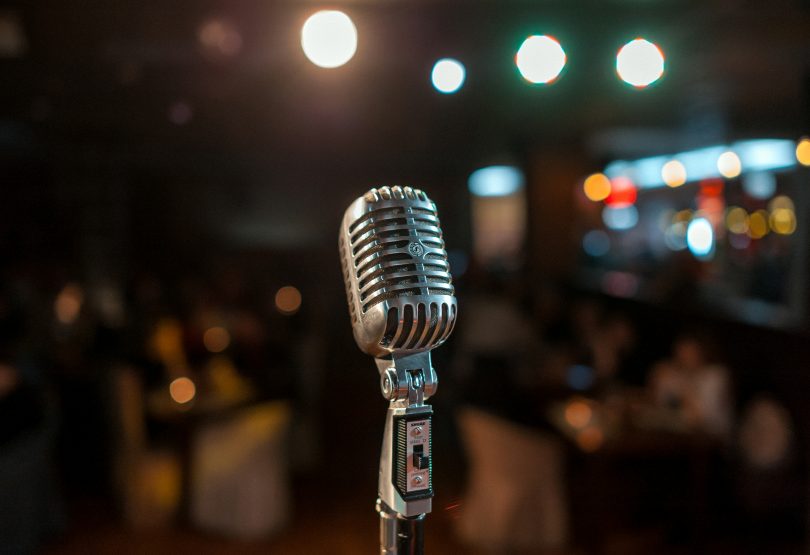Live performance of any kind can be a daunting, stressful and strenuous activity. This is the case for any type of performance; if you’re an athlete performing in the Olympics, if you’re a musician on tour, if you’re an actor on set or onstage, if you’re a soldier fighting in a war, or if you’re a student taking an exam – all of these have similarities. The similarity between these activities is the need to perform, there and then, and do it well. You’re there, in the flesh, the pressure is on, the stakes are high, and you want to succeed.
It’s no surprise, then, that for years people have been using specific substances in order to enhance their performance during stressful times like these. But why is this? Why do certain drugs help enhance performance and confidence? And how many well-known stars have been doing this? Let’s take a closer look.
We cover everything important in the cannabis industry; so subscribe to the THC Weekly Newsletter to keep up with everything going on right now. It’ll also get you premium access to stellar deals on cannabis products like vapes, edibles, and other paraphernalia! Plus, we’ve also got some sweet offers on cannabinoids, like HHC-O, Delta 8, Delta 9 THC, Delta-10 THC, THCO, THCV, THCP & HHC, which won’t break the bank. Check out our “Best-of” lists to access these deals, and always remember to enjoy responsibly!
Performance
In a sense, it’s hard to understand why anyone would ever want to put themselves under the stress and responsibility of performing. Performing is an umbrella term that can mean a whole load of different activities. Sex is a performance. Acting is a performance. Competing is a performance. Fighting is a performance. Doing an exam is a performance. Whilst most people think of performance needing an audience, anything that requires you to perform at a certain level is, intrinsically, a performance. Performance anxiety can come from the fear of doing a bad job.
In the case of warfare, doing a bad job could lead to death. Whereas, not performing well during sexual intercourse, could lead to an unsatisfied partner. The issue is, a good performance requires a level of calmness and confidence. If you think about the best musicians you’ve ever seen live, none of them will have looked scared or anxious. They will have looked calm and collected. Avoiding performance anxiety is a necessity for many performers and some will do whatever they can to ensure they don’t experience it at crucial moments. WebMD writes:
“Performance anxiety can prevent you from doing what you enjoy and can affect your career. Worst of all, performance anxiety can negatively affect your self-esteem and self-confidence. Although it may be impossible to totally overcome performance anxiety, there are many things you can do to control your emotions and reduce anxiety.”
There’s very few occasions where performance anxiety or stage-fright improves your overall performance. Unless, perhaps, you’re playing a character in a film who is anxious and nervous in themselves. But even then, the anxiety you feel towards being filmed could lead to you forgetting your lines or looking at the camera. Essentially, a good performance requires confidence; that’s the bottom line. But how far will people go to get it?
Performance & Drugs
Performance-enhancing drugs are often criticised by the masses, and prosecuted by the FDA. This specific class of drugs are used by athletes in order to physically enhance the sportsman. In a sense, these drugs are different from confidence-giving substances as they make a genuine physical difference to the user. However, in this article, we’re going to be throwing them all together in one. We will be making the case that any drug used to enhance a performance – be it for confidence or physicality – all comes from the same idea and concept. So let’s take a look at the different types of performers who use drugs to enhance their performance.
Athletics
As previously mentioned, athletes are some of the most obvious users of performance-enhancing drugs. In competitive sports, the margin between success and failure can be extremely miniscule. Consider the 100m sprint, every sprinter is extremely talented and often it’s only a very small difference between first and second place. Therefore, any opportunity to somehow get the edge on your opponent, people will take. Hence why performance enhancing drugs, despite their illegality, can be common. The Australian Academy of Science splits the drugs athletes can use into categories:
“Among the most popular PEDs are anabolic steroids, human growth hormone, erythropoietin (EPO), beta-blockers, stimulants and diuretics to name just a few.”

Some help speed up the growth of muscles, others help pump blood around the body quicker and thus improving oxygenation, and some simply enhance the energy of the athlete. Most of these drugs, except perhaps creatine, are banned. Lance Armstong, one of the best cyclists ever to exist, admitted to having taken the growth hormone performance-enhancing drug. Supposedly, this drug helped him to 7 Tour De France victories. Ultimately, the reason athletes dope is because they know it could be the difference between success and failure.
Music
Musicians might look like they’re living the coolest life in the world, but in reality, the long and strenuous tours can take up most of their year. Plus, it doesn’t allow them time for themselves or time to get into good routines. Johnny Cash was known to have toured 300 days in a year during his peak addiction issues. It’s likely that musicians won’t see their family and friends much, and will be forced into bad diets and bad sleeping patterns whilst on tour. That’s not to say that the insane money they make won’t fix these issues soon after, it’s just important to note that musicians are under a lot of pressure. In addition, the responsibility of putting on a great show for audience after audience can lead to anxiety and stage-fright. That’s why it’s no surprise that a lot of the greatest musicians have struggled with drug addiction. Musicians can use drugs to boost their confidence, to help them enjoy the experience, to numb themselves completely, or even, to spark creativity.
Johnny Cash was addicted to amphetamines, Elton John used cocaine, Eminem used valium, the Beatles enjoyed acid, and Amy Winehouse dabbled in heroin. It’s no surprise that some of music’s greats have turned to drugs to make them feel different. Afterall, they’re living a career that so many would dream of, and when they inevitably start to find it difficult, they probably think there’s something wrong with them. Instead, fame and pressure is the issue, not themselves.
Acting
Just like musicians, actors also have used substances in order to boost their confidence. However, the art of acting is about feeling the emotion, rather than ‘putting on a good show’. Therefore, actors have to be far more careful about the drugs they use. It’s much easier to tell when an actor is on drugs than a musician. During the filming of Star Wars, Carie Fisher and Harrison Ford opened up to taking copious amounts of cocaine before shooting.
In addition, during the shooting of hit sit-com Friends, Mathew Perry, who played Chandler, was suffering from severe addiction. During a BBC interview, Perry admitted:
“From an outsider’s perspective, it would seem like I had it all..It was actually a very lonely time for me because I was suffering from alcoholism…I don’t remember three years of it…I was a little out of it at the time — somewhere between seasons three and six.”
Matthew Perry admitted that he used drugs and alcohol as a way to deal with the severe responsibility of needing to be funny all of the time. Even some of the most successful actors and esteemed theatre actors admit to having a little tippled to boost their confidence before going onstage.
Soldiers
Fighting in a war can be brutal and scary. You can use loved ones, friends, and even your own life, in the blink of an eye. Therefore, more often than not, soldiers are dealing with PTSD as well as anxiety about the near future. Wikipedia writes about the use of drugs during warfare:
“Alcohol has a long association of military use, and has been called “liquid courage” for its role in preparing troops for battle. It has also been used to anaesthetize injured soldiers, celebrate military victories, and cope with the emotions of defeat.”

More recently, during the middle eastern war with ISIS, soldiers have been reported to be using captagon – a drug to enhance the confidence and focus of the soldiers.
Students
The final, but often least-considered type of performance we will be covering is student exams. While it may seem like there’s less at stake, we surely can all remember the stress and pressure of important school exams and the emotional impact that had on us. Plus, fitting that much information into your brain can feel impossible. That is why many students today are using focus-enhancing drugs, such as addrerol. The Guardian writes:
“Students used to take drugs to get high. Now they take them to get higher grades”
Final thoughts on drugs and performance
Performing, in any capacity, can be a fearful and stressful activity. But over the years people have found ways to cope using drugs to boost confidence, euphoria and focus. Whether you believe this to be a bad thing or a good thing, it’s happening. And it will continue to happen. Perhaps when people begin to finally acknowledge the pressure that is put under performers constantly, then this might stop.
Welcome all! Thanks for stopping by CBDtesters.co, your #1 web source for comprehensive independent news coverage of the cannabis and psychedelics industries. Join us whenever you can to stay informed on the quickly-moving worlds of cannabis and psychedelics, and check out The THC Weekly Newsletter, to ensure you never miss an important story.
Disclaimer: Hi, I’m a researcher and writer. I’m not a doctor, lawyer, or businessperson. All information in my articles is sourced and referenced, and all opinions stated are mine. I am not giving anyone advice, and though I am more than happy to discuss topics, should someone have a further question or concern, they should seek guidance from a relevant professional.









